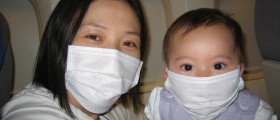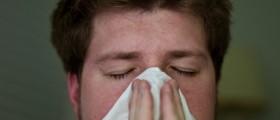
Wintertime is usually associated with frequent viral diseases, especially common cold and flu. People spend more time indoors, which makes it easier to catch a virus and fall ill. These are lots of serious illnesses, but they can be exhausting, frustrating, and they make it difficult to perform everyday activities, not to mention going to school or to work.
Typical winter illnesses cannot always be avoided, but these tips can definitely help reduce the risk of getting them.
People with high risk
Some people are more likely to fall ill in the winter. Elderly people, pregnant women, toddlers, heart patients, diabetics, people with chronic diseases, people undergoing chemotherapy or radiation therapy and everyone with compromised immune system are considered to be at a higher risk of common cold and flu and they should be extra careful not to catch the virus.
Hygiene
Hygiene is the key element in reducing the risk of virus diseases in the winter. The virus is spread through direct or indirect contact. People can catch the virus if they touch a contaminated object, previously handled by an infected person, and then touch their nose or mouth. This is why it is very important to carefully wash hands several times a day, especially before the meals, and to avoid touching the face or putting the fingers in the mouth. The proper way to wash hands is to use liquid soap and warm or hot water and to carefully dry the hands afterwards, using fresh paper towels.
Hydration
People generally drink less water in the winter. However, the intake of fluids, especially plain water, should not be neglected in colder seasons, because the water flushes out the toxins from the body, improves the immune response against viruses and bacteria and maintains good overall health.
Everyone should drink eight to ten glasses of fluids per day. Part of it should be water, and the rest can include vegetable and fruit juices, milk, yogurt and beverages. Coffee and tea should not count towards that quota, because they have a diuretic effect and actually reduce the amount of fluids in the body.
Healthy diet
Typical wintertime diseases can be prevented by keeping the immune system strong. The easiest way to do this is to eat healthy. A healthy diet should consist of plenty of fiber, best if from fruit and vegetables, fish at least once a week, whole grain products and less sweets, processed foods and deep fried foods. The consumption of foods rich in antioxidants is also very important. Vitamins and minerals in the form of supplements should be taken if dietary sources of these nutrients are not sufficient, as it often happens in winter.

















Your thoughts on this
Loading...